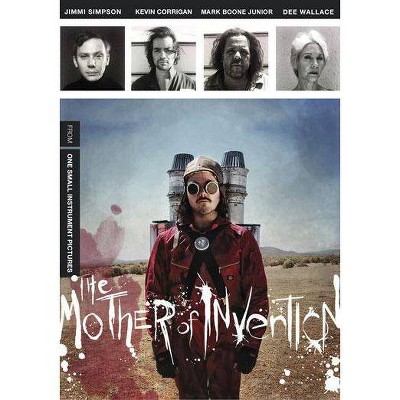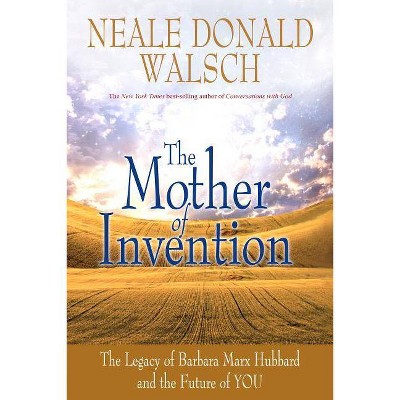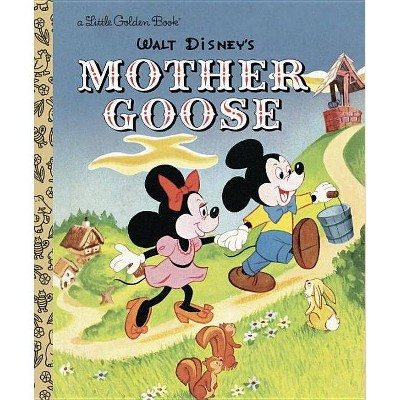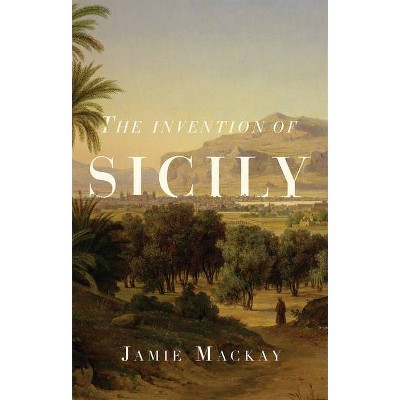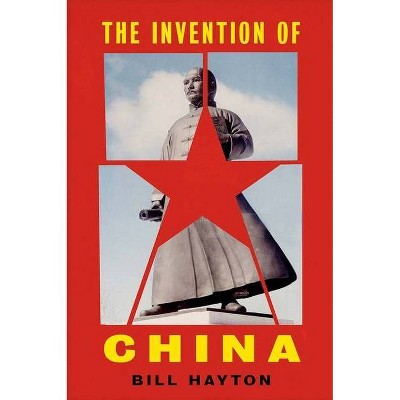Mother of Invention - by Katrine Marçal (Hardcover)
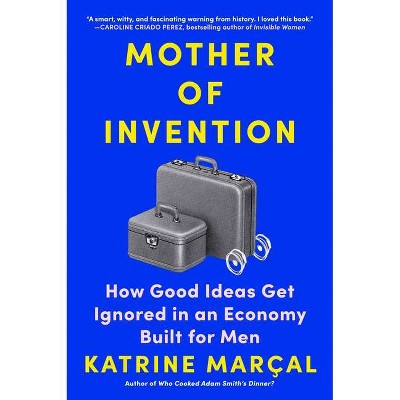
Similar Products
Products of same category from the store
AllProduct info
<p/><br></br><p><b> About the Book </b></p></br></br>The wheel was invented some 5,000 years ago, and the modern suitcase in the mid-nineteenth century, but it wasn't until the 1970s that someone successfully married the two. What was the hold up? For writer and journalist Katrine Marðcal, the answer is both shocking and simple: because "real men" carried their bags, no matter how heavy. There were rolling suitcases before the '70s, but they were marketed as a niche product for (the presumably few) women travelling alone, and the wheeled suitcase wasn't "invented" until it was no longer threatening to masculinity. Mother of Invention draws on this example and many others, from electric cars to tech billionaires, to show how gender bias stifles the economy and holds us back. Our traditional notions about men and women have delayed innovations, sometimes by hundreds of years, and have distorted our understanding of our history. While we talk about the Iron Age and the Bronze Age, we might as well talk about the Ceramic Age or the Flax Age, since these technologies were just as important. But inventions associated with women are not considered to be technology in the same way. Marðcal takes us on a tour of the global economy, arguing that gendered assumptions dictate which businesses get funding, how we value work, and how we trace human progress."--<p/><br></br><p><b> Book Synopsis </b></p></br></br><b>An illuminating and maddening examination of how gender bias has skewed innovation, technology, and history</b> <p/> It all starts with a rolling suitcase. Though the wheel was invented some five thousand years ago, and the suitcase in the nineteenth century, it wasn't until the 1970s that someone successfully married the two. What was the hold up? For writer and journalist Katrine Marçal, the answer is both shocking and simple: because "real men" carried their bags, no matter how heavy. <p/><i>Mother of Invention </i>is a fascinating and eye-opening examination of business, technology, and innovation through a feminist lens. Because it wasn't just the suitcase. Drawing on examples from electric cars to bra seamstresses to tech billionaires, Marçal shows how gender bias stifles the economy and holds us back, delaying innovations, sometimes by hundreds of years, and distorting our understanding of our history. While we talk about the Iron Age and the Bronze Age, we might as well talk about the "Ceramic Age" or the "Flax Age," since these technologies were just as important. But inventions associated with women are not considered to be technology in the same way. <p/> This is a sweeping tour of the global economy with a powerful message: if we upend our biases, we can unleash our full potential.<p/><br></br><p><b> Review Quotes </b></p></br></br><br><p>"Another eye-opening entry for the 'Where Are All the Women?' playbook. A wide-ranging swoop through the history of technology and how game-changing innovations got delayed, dismissed, or forgotten if they were suggested by women or just because they were seen as feminine. Set in an apparently implacable framework of an absolute difference between female and male ideas and life abilities, the narrative can, at times, be infuriating but always thought-provoking and intriguing. It is a clearly needed wake-up call to future innovators not to view the world through a narrowly gendered lens but to pay attention to the skills and lived experiences of all."</p>--<b>Professor Gina Rippon</b>, <i><b>bestselling author of The Gendered Brain</b></i><br><br><p>"From wheeled suitcases to witch trials, Katrine Marçal makes you look again at history in this funny, clever, and provocative book."</p>--<b>Helen Lewis</b>, <i><b>author of Difficult Women: A History of Feminism in 11 Fights</b></i><br><br><p>"Sometimes we are lucky to experience a leap in new thinking. We look in amazement at the world around us and ask: Why didn't we see this before? This what Katrine Marçal offers us in <i>Mother of Invention</i>. She brilliantly proves how male-driven technology over the ages has limited full human development by neglecting a liberating female narrative and perspective."</p>--<b>Jan Eliasson</b>, <i><b>former deputy secretary-general of the UN</b></i><br><br><p>"This is an absolute must-read. Equal parts informative and infuriating."</p>--<b>, author of Sex: Lessons from History</b>, <i><b>Dr. Fern Riddell</b></i><br><br><p>"This second book by the author of <i>Who Cooked Adam Smith's Dinner</i>? is both bracing and highly entertaining. Marcal's contention is that while women have been coming up with ingenious inventions since the beginning of time, they are routinely sidelined in a world geared to men."</p>--<i><b>Bookseller</b></i><br><br>"[A] breezy read... Each chapter uses an animating story...to offer free-flowing ruminations on patriarchy, economics, and invention." <br>--<i><b>Booklist</b></i><br><br>"[A] quirky treatise...Told in a conversational tone, this feminist directive...fascinates with its wealth of historical tidbits. Fans of Caroline Criado-Perez's <i>Invisible Women</i>, take note." <br>--<i><b>Publishers Weekly</b></i><br><br>"[Marçal's] at-once anecdotal and theoretical book seeks to understand what's lost when women's social contributions are limited, as well as ways to move toward a new model. The author's writing shines when she addresses perceptions of women throughout history; she particularly carefully unpacks how Black and brown women have historically been restricted and misrepresented, and the misconceptions that endure... A must-read." <br>--<i><b>Library Journal, *starred* review</b></i><br><br>"A smart, witty, and fascinating warning from history. I loved this book."--<b>Caroline Criado Perez</b>, <i><b>bestselling author of Invisible Women</b></i><br><br>"Start 'Mother of Invention, ' and you'll be astounded. It's fun and super-informative with tales of innovations that were largely ignored or irritatingly co-opted by men, and back-stories of how the presence of the feminine, whether real or imagined, changed products and processes...wry and very, very enjoyable..."--<i><b>Idaho Press</b></i><br><br>"The joy of the book is how it manages to weave in stories of women influencing innovation in masculine spaces...Innovation may have been stifled by gender bias in the past, but Mother of Invention shows that we can choose a different future." <br>--<i><b>Science Magazine</b></i><br><p/><br></br><p><b> About the Author </b></p></br></br><b>Katrine Març</b><b>al</b> is a Swedish writer, journalist and correspondent for the Swedish daily newspaper <i>Dagens Nyheter. </i>Her first book, <i>Who Cooked Adam Smith's Dinner?</i> was shortlisted for the August Prize and won the Lagercrantzen Award. She lives in London.
Price History
Price Archive shows prices from various stores, lets you see history and find the cheapest. There is no actual sale on the website. For all support, inquiry and suggestion messagescommunication@pricearchive.us
